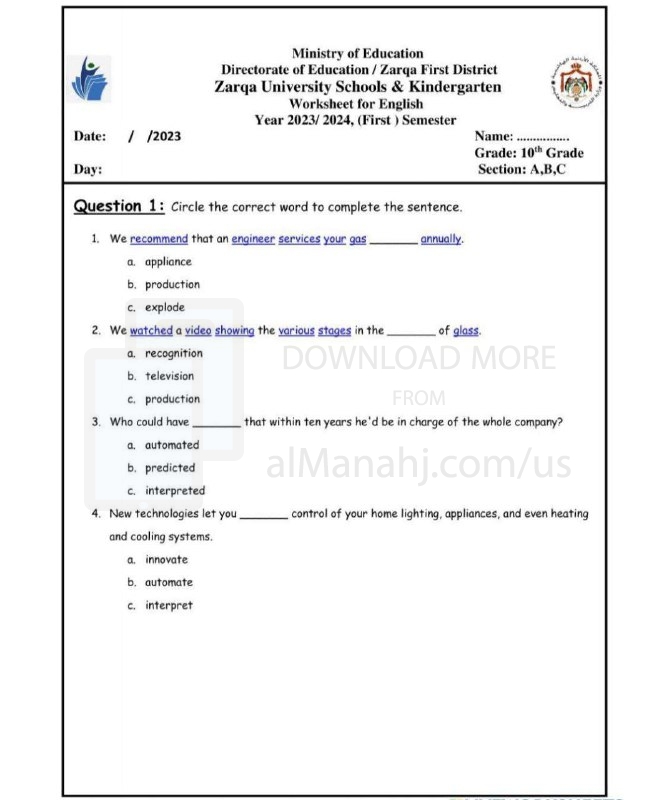| File info: Vocabulary and grammar are two fundamental components of language that work together to enable effective communication in English.
Vocabulary refers to the words and phrases that make up a language. It encompasses a wide range of categories, including nouns, verbs, adjectives, adverbs, prepositions, and more. Building a rich vocabulary is essential for expressing ideas, describing objects and experiences, and understanding written and spoken language. A strong vocabulary allows individuals to choose the most appropriate words to convey their intended meaning and adds depth and precision to their communication.
Grammar, on the other hand, refers to the set of rules and structures that govern how words are organized and combined to form meaningful sentences. It encompasses various aspects, such as sentence structure, verb tenses, subject-verb agreement, word order, articles, pronouns, and more. Grammar provides the framework for constructing coherent and grammatically correct sentences. Understanding and applying grammar rules accurately is crucial for conveying meaning accurately and avoiding confusion or misinterpretation.
Vocabulary and grammar are interconnected. Vocabulary provides the building blocks for expressing ideas, while grammar provides the structure and rules for organizing those building blocks into meaningful sentences. Without a solid foundation of vocabulary, it can be challenging to convey precise meanings or understand the nuances of language. Similarly, without a good grasp of grammar, sentences may be grammatically incorrect or ambiguous, hindering effective communication.
Improving vocabulary and grammar skills involves continuous practice and exposure to the language. Reading books, articles, and other authentic materials helps expand vocabulary and exposes learners to different grammatical structures. Engaging in conversations, listening to native speakers, and practicing writing also contribute to vocabulary and grammar development.
Language learners can enhance their vocabulary by actively learning and reviewing new words, exploring synonyms and antonyms, and using context clues to infer meanings. They can improve their grammar skills by studying grammar rules, practicing sentence construction, and seeking feedback on their written and spoken language.
In summary, vocabulary and grammar are essential aspects of language proficiency. Vocabulary provides the words and phrases necessary for effective communication, while grammar offers the rules and structures for organizing those words into meaningful sentences. Developing a wide-ranging vocabulary and a solid understanding of grammar rules are crucial for becoming fluent and confident in English. |
